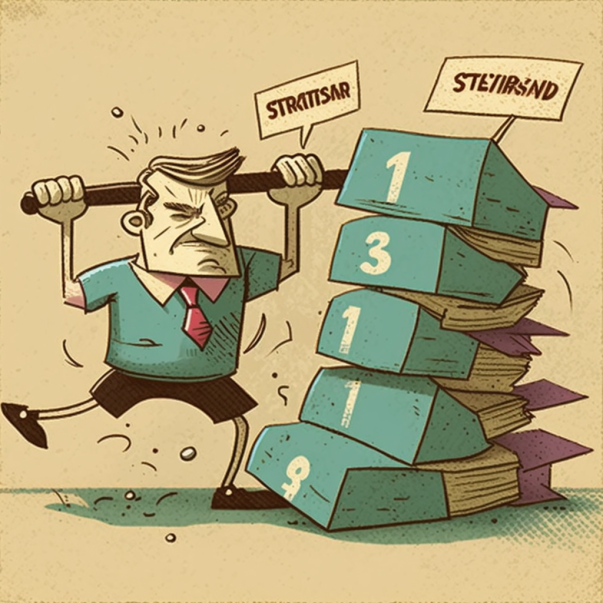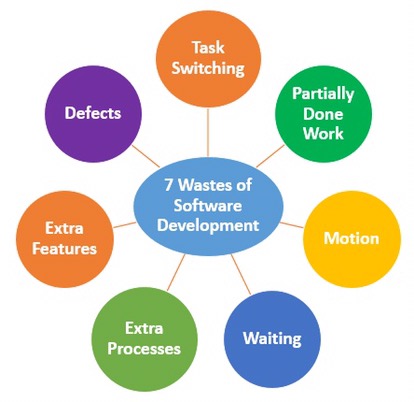The Five Scrum Values are core principles that guide the behavior and interactions of the members of a Scrum team. These values are:
- Commitment: Scrum team members are committed to achieving the goals of the Scrum process and to delivering high-quality products. They work together to create a Sprint Goal and a plan for how they will achieve it.
- Courage: Scrum team members have the courage to take risks, make mistakes, and learn from them. They are willing to challenge the status quo, experiment with new ideas, and adapt to changing circumstances.
- Focus: Scrum team members are focused on the work they have committed to for the Sprint and prioritize tasks accordingly. They limit distractions and interruptions and stay focused on the Sprint Goal.
- Openness: Scrum team members are open to feedback and willing to adapt to changing circumstances. They promote transparency and encourage open and honest communication among team members.
- Respect: Scrum team members respect each other’s opinions, skills, and contributions. They work collaboratively, value diversity, and create a safe and supportive environment for all team members.
These values help to establish a culture of trust, collaboration, and continuous improvement within a Scrum team. By embracing these values, team members can work together effectively to deliver high-quality products that meet the needs of the customer.
| Scrum Value | Phase | Roles | Responsibilities | Description | Issue | Mitigations |
|---|---|---|---|---|---|---|
| Commitment | Sprint Planning | Scrum Master, Product Owner, Development Team | Scrum Master facilitates the planning meeting, Product Owner prioritizes and clarifies the Product Backlog, Development Team estimates and commits to work for the Sprint | The team works together to create a Sprint Goal and a plan for how they will achieve it. | Lack of commitment from team members can result in poor collaboration and missed deadlines. | Establish clear expectations and goals, foster a sense of team ownership over the work, encourage open communication and transparency. |
| Courage | Sprint Review and Retrospective | Scrum Master, Product Owner, Development Team | Scrum Master facilitates the review and retrospective meetings, Product Owner provides feedback on the Sprint Goal, Development Team reflects on their performance and identifies areas for improvement | The team has the courage to take risks, make mistakes, and learn from them. | Fear of failure or reluctance to speak up can stifle innovation and growth. | Foster a safe and supportive environment for team members to share their thoughts and ideas, encourage experimentation and creativity, celebrate successes and learn from failures. |
| Focus | Daily Scrum | Scrum Master, Development Team | Scrum Master facilitates the daily meeting, Development Team shares progress and identifies any obstacles | The team focuses on the work they have committed to for the Sprint and prioritizes tasks accordingly. | Distractions and competing priorities can derail progress and lead to missed goals. | Set clear priorities and expectations for the work to be done, limit distractions and interruptions during the Sprint, encourage team members to stay focused on the Sprint Goal. |
| Openness | Sprint Review and Retrospective | Scrum Master, Product Owner, Development Team | Scrum Master facilitates the review and retrospective meetings, Product Owner provides feedback on the Sprint Goal, Development Team reflects on their performance and identifies areas for improvement | The team is open to feedback and willing to adapt to changing circumstances. | Resistance to change or reluctance to receive feedback can hinder growth and progress. | Encourage open and honest communication among team members, promote a culture of continuous improvement, embrace new ideas and perspectives. |
| Respect | All Phases | Scrum Master, Product Owner, Development Team | Scrum Master facilitates collaboration and communication among team members, Product Owner respects the expertise and opinions of the Development Team, Development Team respects each other’s skills and contributions | The team values each other’s opinions, skills, and perspectives, and works together collaboratively. | Lack of respect or trust can lead to conflict, low morale, and decreased productivity. | Encourage open communication and active listening, establish clear roles and responsibilities, promote a culture of inclusivity and respect. |




